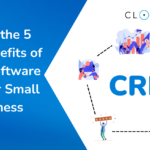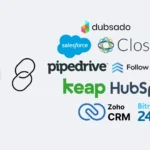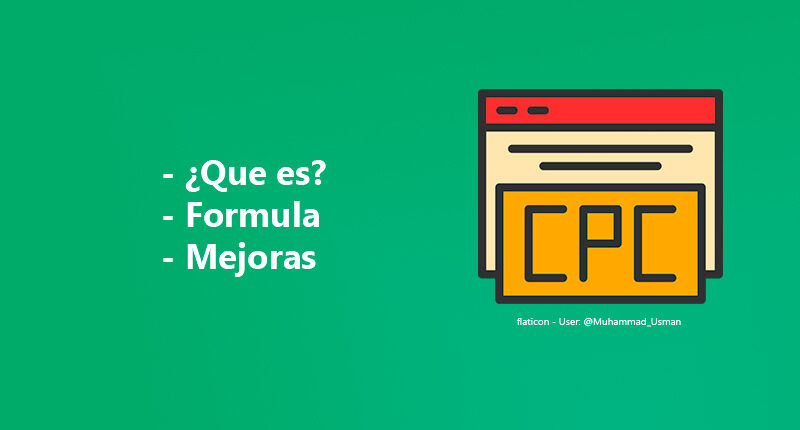Content marketing is a strategic approach to creating and distributing valuable, relevant and consistent content to attract and retain a clearly defined audience, with the goal of driving them to profitable action.
Article index
Unlike traditional marketing, which aims to interrupt people and sell them a product or service, content marketing focuses on creating materials that are useful and attractive to readers, allowing them to establish a relationship of trust with the audience. brand.
Content marketing is also known as “content marketing”, “materials marketing” or “article marketing”.
What is content marketing?
Content marketing is a marketing strategy that focuses on creating and distributing relevant and valuable content to attract, gain, and ultimately retain a defined audience.
The content can be any format, from a blog or article, to a video or infographic. The important thing is that the content is relevant to your audience and that it provides value.
Content marketing strategy is based on the belief that if you offer valuable and relevant content to your customers and prospects, you will be better positioned to attract and convert
In short, content marketing is a marketing strategy that focuses on creating and distributing relevant and valuable content to attract, gain, and ultimately retain a defined audience. The ultimate goal of content marketing is to improve sales and generate more qualified leads.
How does content marketing work?
Content marketing works by attracting potential customers to your website or blog through creating valuable and relevant content. Once potential customers arrive on your site, content marketing helps them convert into customers by offering additional materials, such as guides and ebooks, to help them make a purchasing decision.
For content marketing to work, it is important to create a solid content strategy that takes into account the company’s objectives, the audience you want to reach, and the type of content to be created.
Once you have a solid content strategy in place, the next step is to create and publish high-quality content on a regular basis. Content should be optimized for search engines to ensure that people can find it when they are searching online for information about the product or service you are offering.
Finally, content marketing requires good promotion to ensure that the content created reaches the right audience. Promoting content can be done through social media, news outlets, e-newsletters, and other online channels.
Why is content marketing important?
Content marketing is important because it helps businesses drive qualified traffic to their website and, in turn, convert that traffic into leads.
Content marketing is also important because it helps companies build a relationship of trust and credibility with their potential customers. When people see that you are publishing useful and relevant content, they begin to perceive your brand as a trustworthy source of information. This is especially important if you are selling products or services that require a lot of research, such as insurance or financial services.
Content marketing is also important because it can help businesses save money on advertising. Instead of paying for ads to reach your target audience, content marketing allows you to create content that will attract people to your website for free.
Blog posts
Blog posts are a great way to create valuable and relevant content that attracts potential customers to your website. Blog posts can also be optimized for search engines, helping people find your site when they are searching for information online.
Infographics
Infographics are a visual way to present information and are extremely shareable on social media. Infographics can help businesses make their content more engaging and easier to digest.
Videos
Videos are an effective way to tell stories and show products and services in action. Videos can also be optimized for search engines and easily shared via social media.
Podcasts
Podcasts are a convenient way to consume content and can address a variety of topics. Podcasts can be optimized for search engines and promoted through social media and email newsletters.
Guides
Guides can be extremely helpful to potential customers who are considering purchasing a product or service. Guides can include detailed information about the product or service, as well as useful tips and tricks.
Ebooks
Ebooks are a popular form of downloadable content that can address a variety of topics. Ebooks can be optimized for search engines and promoted through social media, e-newsletters, and other online channels.
What are the benefits of content marketing?
There are numerous benefits associated with content marketing, including the following:
Generate qualified traffic
Content marketing helps you attract potential customers to your website through creating valuable and relevant content.
Improve SEO
Content marketing can improve your website’s SEO by creating content that is optimized for search engines.
Build trust and credibility
Content marketing helps you build a relationship of trust and credibility with your potential customers.
Save money
Content marketing helps you save money on advertising by allowing you to create content that will bring people to your website for free.
Improve engagement:
Content marketing can improve the engagement of potential and current customers with your brand.
There are a variety of metrics that can be used to measure content marketing success, including the following:
Traffic:
Traffic is the number of visits your website receives.
Time on site
Time on site is the average time people spend on your website.
Page views
Page views are the number of pages people visit on your website.
Rebound
Bounce is the percentage of people who leave your website after visiting a single page.
Conversions
Conversions are the number of people who take a specific action, such as subscribing to an email newsletter or purchasing a product.
Social shares
Social shares are the number of times people share your content on social media.
Comments
Comments are the number of comments your content receives. You can measure the number of comments using tools like Disqus.
Incoming links
Inbound links are the number of links that come to your website from other websites.
Quotes in media
Media citations are the number of times your brand or content is mentioned in the media. You can measure the number of citations in the media using tools such as Google Alerts.
How to create a content marketing plan?
Content marketing is becoming one of the main digital marketing strategies, as it allows brands to create and share relevant and valuable content with their audiences.
To develop an effective content marketing plan, it is necessary to take into account a series of factors, such as the theme, format, frequency and distribution channel. Below, we detail each of these aspects:
Theme
The theme is the central axis of your content marketing plan, since the rest of the elements will depend on it. Depending on the theme you have chosen, you must select the most appropriate format and distribution channel.
Format
The format is the most important aspect of the content, since it will be what determines whether the user consumes it or not. There are a wide variety of formats that you can use, such as articles, videos, infographics, photos, etc.
Frequency
The frequency with which you publish content is also very important. If you publish content irregularly, you are likely to lose the attention of your audience. On the contrary, if you post content too frequently, you can overwhelm your followers.
Distribution channel
The distribution channel is the means by which the content will be shared. There are a wide variety of channels, such as social networks, blogs, forums, media, etc.
Once you take these factors into account, you will be able to develop an effective and successful content marketing plan.
How is Content Marketing linked to Inbound Marketing?
Inbound Marketing is a methodology that focuses on attracting potential users to the brand through quality content, relevant to them. Instead of interrupting users with advertising, Inbound Marketing offers them content that they find useful and interesting, in order to build lasting relationships with them.
Content Marketing consists of creating and sharing valuable content, relevant to users, in order to attract new potential customers and foster the loyalty of existing customers.
Content Marketing is linked to Inbound Marketing in several ways:
1. Content Marketing attracts potential users to the brand
Content Marketing helps attract potential users to the brand through quality content, relevant to them. Instead of interrupting users with advertising, Inbound Marketing offers them content that they find useful and interesting, in order to build lasting relationships with them.
2. Content Marketing fosters customer loyalty
Content Marketing also helps build loyalty from existing customers. By offering them quality and relevant content, you show them that the brand cares about their well-being and offering them the best. This builds customer loyalty and makes them more likely to recommend the brand to others.
3. Content Marketing increases web traffic
Content Marketing can also help increase web traffic, as users will actively search for quality content that is relevant to them. If the content is high quality and optimized for search engines, this can lead to increased web traffic and ultimately more leads.
4. Content Marketing generates leads
Content Marketing can also help generate leads, as content can attract potential users to the brand and, in turn, can convert them into qualified leads. The content must be quality and relevant to the user, and must offer a clear call to action to convert the user into a lead.
5. Content Marketing turns leads into customers
Content Marketing can also help convert leads into customers, as content can help establish the brand as an authority in the sector and can build trust in the brand. The content must be quality and relevant to the user, and must offer a clear call to action to convert the user into a customer.
Content Marketing is a key piece of Inbound Marketing, as it helps attract potential users to the brand and build lasting relationships with them. Content Marketing is linked to Inbound Marketing in several ways, as described above.










